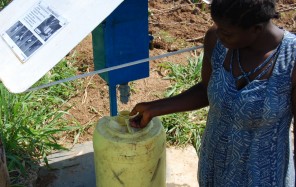We often hear about the negative impacts of peer pressure, but a recent New York Times article highlights its potential benefits. Peer pressure can be harnessed to change social norms and encourage the adoption of beneficial health products and services.
Depending on an organization’s capacity and community needs, there are several different ways to use peer pressure for good. Programs may first target visible leaders, who have the trust and respect of the community, to more easily facilitate behavior change among the rest of a population. Other interventions – like a chlorine dispenser evaluation Kenya conducted by IPA researchers, including CEGA faculty director Edward Miguel – create visual cues to maximize learning and diffusion through social networks. BRAC and other reproductive health programs in India, Indonesia and elsewhere train a small cohort of older youth who can then reach a wider audience as mentors or through peer to peer education.
As programs continue to harness social and peer pressure to improve, they also create new opportunities for research that identifies and adapts the best approaches for program beneficiaries. Join the discussion here.
